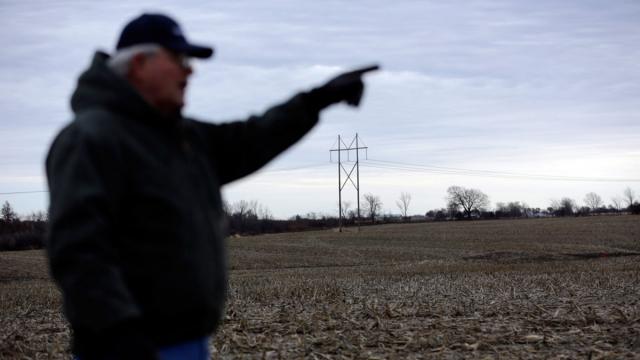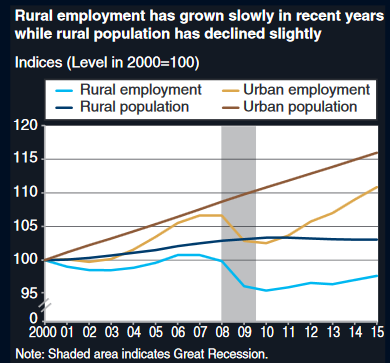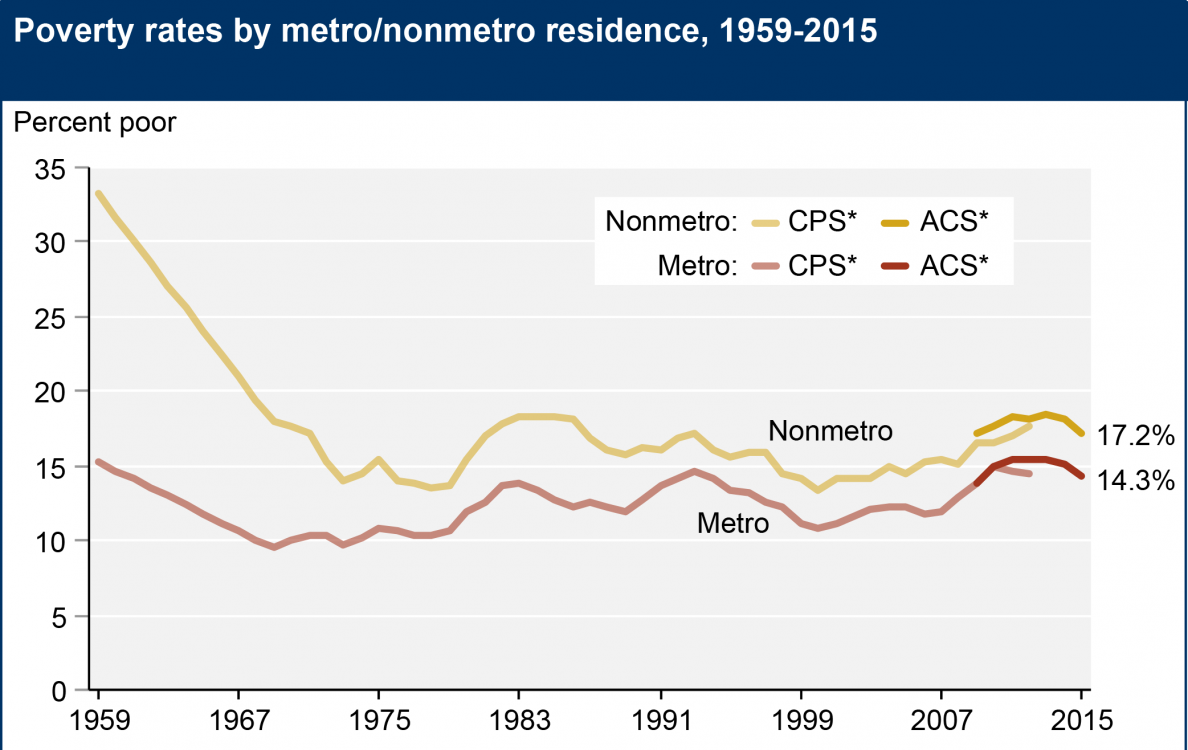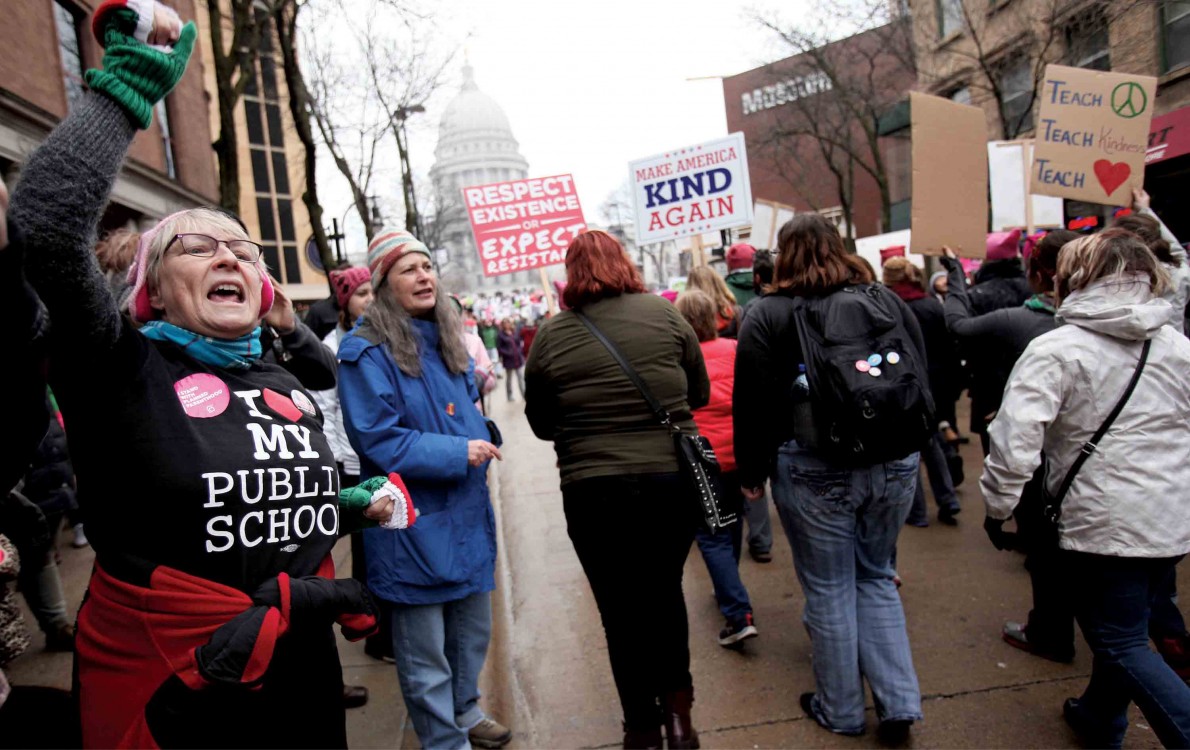
In a recent op-ed in the Roanoke Times, activist and organic farmer Anthony Flaccavento argues that Democrats must pay a lot more attention to rural America if they hope to rebuild the party. It is a startling proposition, if only because it rarely gets articulated, but one that should be a central part of a progressive agenda in 2018 and beyond. It also takes aim at the stale debate in democratic and progressive circles about whether the party should “lean to the center” to try to appeal to imagined swing voters, including the so-called “white working class,” or aim instead to “energize the base.”
Thinking solely in terms of winning governing majorities in Congress and the states as well as electing the president, there is no way the Democrats can give up on rural areas and red states. Hillary Clinton’s underperformance in the countryside compared with Obama in both 2008 (especially) and 2012 helped her lose the former Democratic strongholds of Michigan, Wisconsin and Pennsylvania.
As John Nichols recently wrote in The Nation, "It would be political malpractice of the worst sort to think that Democrats can retake the Senate and the House, much less prevail in state houses across the country, without a bold plan for renewing their party’s fortunes in small cities, towns, and farm country."
Nichols goes on to explain that, in fact, there are significant pockets of progressivism throughout rural areas, including Latinos and African-Americans as well as activists begging for support from the Democratic Party. Flaccavento makes a similar point about his region of Virginia. At the same time, the case for Democratic Party engagement in rural areas is not an all-or-nothing proposition. As Obama demonstrated, Democrats don't need to win the rural areas – they just need to compete there while they rack up large margins in urban areas.
Such an electoral strategy would yield benefits up and down the ballot across much of the country.
Beyond electoral politics, rural areas are facing serious problems that need to be addressed. This is a crucial point that progressives and Democrats shouldn’t miss. Figuring out what issues might appeal to a certain segment of the population, then fashioning a message in order to garner votes at election time, is hardly a good way to develop long-term identification with a party – among any constituency.
A much better approach, but one that requires more effort, would be to build long-term relationships with rural progressives and organizations while working with them to address rural problems. What are the problems faced by rural communities? This is obviously a huge question, but people in rural areas have many of the same concerns as those in urban and suburban areas. In basic economic indicators like unemployment and poverty rates, rural areas fare worse than urban areas nationally. The following graph shows that rural poverty rates have consistently been higher than those in urban areas.
The graph also shows that since 1999, poverty rates have risen for both urban and rural areas. The picture for employment is similar, as seen in the following chart:
The most notable trend here is that rural employment has consistently been under the year 2000 baseline, falling significantly during the Great Recession (shaded area) and recovering only gradually since. Perhaps the most important general trend in the past several decades is the significant decline in the number of family farms, and the corresponding rise in corporate farms as described in this Washington Post article.
The problem, as explained by David Dayen writing in The Nation, is not just that the number of large corporate farms (often multinational corporations) has increased along with their total holdings, but that these agribusinesses are now exerting monopoly power and undermining the economic viability of rural communities.
Whether it is getting produce, meat or poultry to market, or buying seeds and other inputs, large corporations have been able to demand low prices and pit small farmers against each other. At the same time, industrial agriculture degrades soils and pollutes streams. The cumulative result is that a significant number of small farmers live in poverty and a large number of rural communities are struggling.
The problems are extensive, but the potential for progressive solutions is quite clear – especially since the Republican Party, to date, has provided zero answers. In fact, Republican policies based on libertarian orthodoxy have made it easier for corporations to buy up land and dominate much of American agriculture and food production.
Fortunately, urban progressives don't need to come up with solutions out of the blue. Rural activists are already working to promote small farms and rural communities. Dayen mentions Family Farm Action, which was formed explicitly to confront corporate agriculture. Their Farmers Bill of Rights explicitly refers to rights to capital, markets, control over land, and social needs such as access to healthcare, locally-grown food and good schools.
Back in Virginia, Anthony Flaccavento and collaborators have written a Rural Progressive Platform that is very much in line with what Bernie Sanders and many progressive organizations are calling for. Among its progressive planks are the following major items:
• Investments in rural communities and sustainable farming, fishing, and forestry practices;
• Support for the RECLAIM Act, which calls for investments in coal, Native American and other communities harmed by extractive industries;
• Support for veterans’ healthcare, Medicare and Social Security funding increases, and rural health clinics as well as incentives for doctors and nurses to work in those clinics and hospitals;
• Investments in local community banks and credit unions;
• Free community college and financial assistance to kids who want to go to 4-year universities;
• Investments in community wind and solar energy projects, along with a modernized electric power grid; and
• Much improved internet access.
Do mainstream Democrats recognize the need and the human potential in America’s rural areas, or the political potential these progressive rural movements represent? Flaccavento and Nichols argue that the response so far has been tepid. On the one hand, the Democrats’ “Better Deal” campaign, despite the justifiable criticisms of it, mentions anti-trust measures that could resonate in rural areas dominated by corporate farms. And during the 2016 presidential campaign, Hillary Clinto talked about the need to build rural health clinics.
But overall, progressives and Democrats aren't giving nearly the amount of attention they should to rural America if they hope to truly impact the elections, pass major initiatives or see any significant Democratic gains in 2018 and 2020. There is still time to “get it right,” but getting it right doesn't mean a move to the center. It’s really not that complicated: Democrats and progressives need to work with rural activists and leaders to articulate solutions to real problems, and then run on those solutions.
3 WAYS TO SHOW YOUR SUPPORT
- Log in to post comments


















